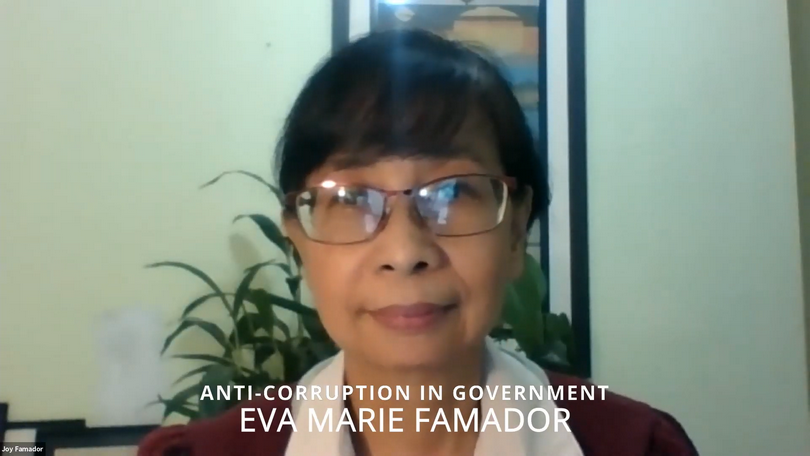A Philippine Christian NGO worker shared common misunderstandings Christians could hold regarding anti-corruption and recommended practices that individuals and churches could take to improve government integrity.
At the Anti-Corruption Conference hosted by the Lausanne Movement and the World Evangelical Alliance’s Global Integrity Network on August 21, Eva Marie ‘Joy’ Famador delivered a speech titled “Anti-corruption in Government: Perspectives and Practices”.
Drawing from her 13-years of experience serving with CCGG to promote anti-corruption on a government level, Ms. Famador, the executive director of Christian Convergence for Good Governance (CCGG), a coalition of faith-based organizations committed to advocate, equip, and mobilize for good governance and nation-building in the Philipines, shared prevalent misconceptions that Christians and churches might hold about anti-corruption issues and recommended practices to improve governmental integrity.
One of the most common perspectives among both Christians and non-Christians was that “nothing can be done about the issue of corruption”, introduced Ms. Famador. However, she commented that believers holding this opinion should examine their faith in God’s overall sovereignty.
By sharing a testimony where a Christian refused to bribe a traffic enforcer as she was asked to after violating the traffic regulations, Ms. Famador, also the national director of Micah Philippines, argued that it was possible to stop corruption and that needed people of conviction.
A common misconception among church leaders was that the campaign against corruption was not the priority of their ministry and was often deemed less important than evangelism and church planting. Regarding this, Ms. Famador emphasized the connection between a character of integrity and behaviors of avoiding corruption and appealed to church leaders to value the teaching of honesty and integrity and integrate this in discipleship.
For individuals who work inside the government, Ms. Famador said anti-corruption was more than not stealing money.
“Not committing corruption means doing the job with due diligence, making decisions that are not prejudicial to the interest of the public, produce excellent work worthy of the public’s trust.”
Individual Christians’ upright acts against corruption might be unknown to the public, yet they were like mustard seeds that seem to be small yet can grow to make a massive impact in society.
She also shared measures that can be taken collectively, including writing letters to government officials on concerned issues, presenting to them the information on a corruption situation backed by data, and speaking out and joining mass rallies, when necessary, to voice that “corruption is an act against the poor. Corruption is not right in the eyes of God”.
One thing that Famador recommended churches to do was to form a support group for those government workers who might often directly witness corruption. These Christians might face extensive pressure and threats in their decision making, and therefore praying with them and providing biblical encouragement and counseling could be very beneficial.
Also, she encouraged people to study the governmental processes and the laws related to corruption of their own countries, to avoid committing corruption without realizing it, because a long-standing corruption environment could normalize certain wrong behaviors.
“To make a stand against corruption in government sometimes is a single moment experience. To some of us, it can be a long journey - be it disciple-making or building a movement in your locality or supporting whistleblowers. Whatever situation God leads us, it is of great importance to listening to God's voice, make Jesus the foundation of our efforts, and depend on His sustaining grace,” she concluded.












